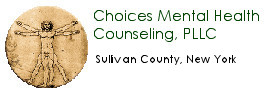The traits listed below are typical of Adult ADD - ADHD. To strongly suspect ADD, a person should have at least 15 of these traits, and the symptoms should be:
- Persistent - The trait is present more often than not, from an early age.
- Pervasive - The trait is present in many different areas of a person's life.
- Prohibiting quality of life - The trait interferes with several areas of life, including work success, relationships, and/or self-esteem.
- Constantly distracted by thoughts or stimuli that interrupt actions or conversations
- Needing to change physical positions often, getting out of chair, moving; history of childhood hyperactivity
- Spacey or daydreaming, trouble concentrating
- Many thoughts and ideas, seemingly all at once
- Multi-tasking, often doing several things at once (such as TV, e-mail, talking on phone, reading)
- Focusing so avidly on an interest that everything else is forgotten
- Tactless, saying the wrong thing at the wrong time
- Missing social cues, behaving or speaking inappropriately
- Needing to write or doodle in order to pay attention in meetings
- Inability to concentrate or sustain focus on reading (not necessarily dyslexia)
- Poor short-term memory
- Chronic lateness, poor time judgment
- Inability to work within the rules of a corporate or bureaucratic structure
- Inability to work effectively without imposed structure
- Chronic clutter and disorganization
- Inability to prioritize
- Inability to get started on tasks such as bill-paying, laundry, mundane paperwork
- Procrastination
- Perfectionism
- Poor follow-through on completing projects, leaving "loose ends"
- Inappropriate anger responses, defensiveness, placing blame on self or others
- History of fractured relationships, misunderstandings
- Thinking in black / white terms; things or people seem either all good or all bad
- Often taking on more than can realistically be accomplished
- Thrill-seeking behavior, or enjoyment of risk
- Intolerance of boredom, changing jobs or hobbies often
|
